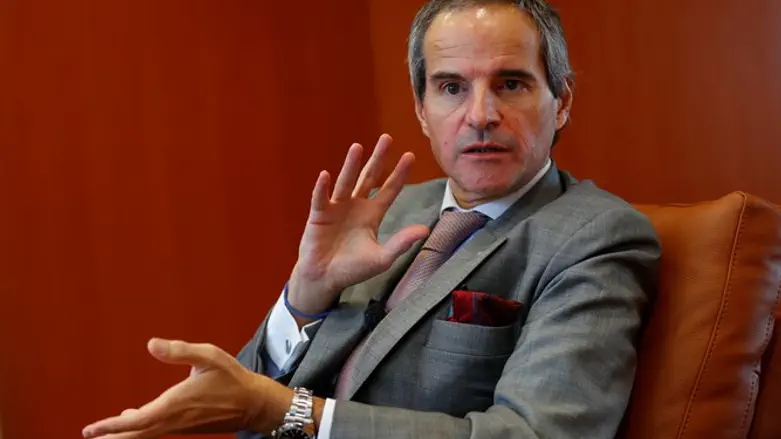
The head of the UN's nuclear watchdog on Monday called on Iran to allow "prompt access" to two sites where past nuclear activity may have occurred, AFP reported.
"I hope we can do better," Rafael Grossi, director general of the Vienna-based International Atomic Energy Agency (IAEA), told reporters when asked about the agency's current relationship with Iran.
Grossi was speaking at the start of a meeting of the agency's Board of Governors which is expected to discuss a report earlier this month in which the IAEA expressed "serious concern" that Iran has been blocking inspections at two sites.
"There are areas where our cooperation is ongoing and there is this issue where quite clearly we are in disagreement," he added.
Grossi repeated an appeal to Iran to "cooperate immediately and fully" with the agency.
If the Board of Governors pass a resolution critical of Iran, it would be the first of its kind since 2012.
The IAEA has for months been pressing Tehran for information about the kind of activities being carried out at an undeclared site where the uranium particles were found.
While the IAEA has not identified the site in question, it is believed to be the Turquzabad facility which was identified by Prime Minister Binyamin Netanyahu during his address before the UN General Assembly in 2018 as a "secret atomic warehouse."
Iran last week expressed "disappointment" over the IAEA report and said it is ready to resolve any issues with the UN nuclear watchdog.
Even though the two sites in question are not thought to be directly relevant to Iran's current activities, the agency says it needs to know if activities going back almost two decades have been properly declared and all materials accounted for.
Grossi said that there were "no legal ambiguities" around the requests for access.
"The agency works on the basis of a very rigorous, dogged, meticulous technical and scientific analysis of information," he said, insisting, "Nothing is taken at face value."
The latest row over access comes as the 2015 deal between Iran and world powers continues to unravel.
Iran has gradually scaled back its compliance with the 2015 deal in response to US President Donald Trump’s withdrawal from the agreement in May of 2018.
Iran's stockpile of enriched uranium is now almost eight times the limit fixed in the accord, according to an IAEA assessment published earlier this month.
However, the level of enrichment is still far below what would be needed for a nuclear weapon.
